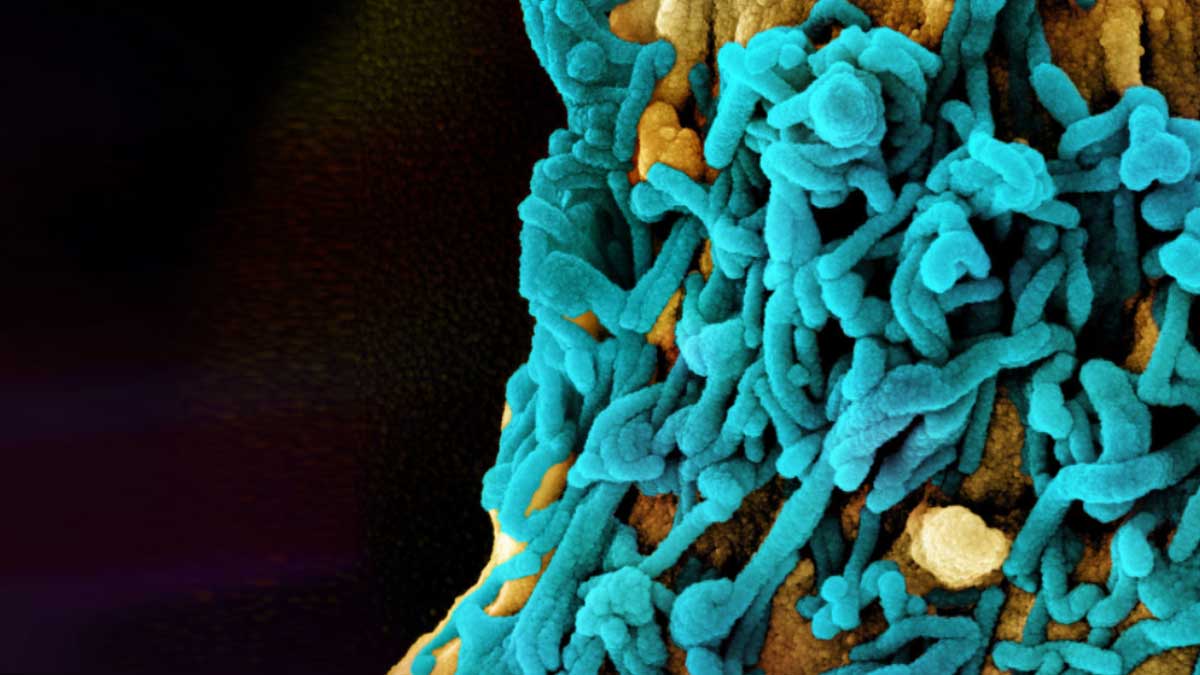- Home
- Billionaires
- Investing Newsletters
- 193CC 1000
- Article Layout 2
- Article Layout 3
- Article Layout 4
- Article Layout 5
- Article Layout 6
- Article Layout 7
- Article Layout 8
- Article Layout 9
- Article Layout 10
- Article Layout 11
- Article Layout 12
- Article Layout 13
- Article Layout 14
- Article Sidebar
- Post Format
- pages
- Archive Layouts
- Post Gallery
- Post Video Background
- Post Review
- Sponsored Post
- Leadership
- Business
- Money
- Small Business
- Innovation
- Shop
Recent Posts
Marburg Virus: Germany Negative; Rwanda Outbreak

Health officials confirmed on Wednesday that suspected cases of the deadly Marburg virus in Germany tested negative, alleviating concerns about the Ebola-like virus spreading to the country. The initial fears arose after two healthcare workers returned from Rwanda, where a new outbreak was declared last week, prompting experts in several African nations to urgently contain the highly infectious virus. The Marburg virus is classified as a viral hemorrhagic fever and is part of the same family as the Ebola virus.
The World Health Organization (WHO) indicates that Marburg virus is primarily transmitted to humans through fruit bats and can subsequently spread among people through contact with the bodily fluids of infected individuals. The onset of illness is sudden, characterized by symptoms such as high fever, muscle pain, severe headaches, bleeding, diarrhea, and vomiting of blood. Past outbreaks have seen fatality rates ranging from 24% to 88%, depending on the virus strain and the quality of medical care available. Currently, there are no approved vaccines or treatments for the Marburg virus, although several potential options are in the early stages of development. Supportive care, including rehydration and management of specific symptoms, has been shown to improve patient outcomes. Public health experts advise against consuming or handling bush meat without proper cooking and recommend avoiding caves and mines that may harbor bats to minimize the risk of contracting the virus.
The recent alarm in Germany was triggered by the potential exposure of two healthcare workers who had been in Rwanda. However, German officials confirmed that both individuals tested negative for the virus. Rwanda declared a new outbreak of Marburg last Friday, with the Africa Centers for Disease Control and Prevention reporting that the majority of confirmed cases involved healthcare workers. As of Tuesday, Rwanda has recorded at least 11 fatalities and around 30 confirmed cases, according to the country’s Ministry of Health. Previous outbreaks have been documented in other African nations, including Tanzania, Kenya, South Africa, Ghana, and Angola.
Marburg is an extremely rare yet serious disease. African fruit bats are the natural hosts of the virus; they typically show no signs of illness, but the virus can spill over into primates and humans, causing devastating effects. The cave-dwelling bats, which are found widely across Africa, have been linked to many outbreaks, particularly among people working in mines where these bats reside. The Centers for Disease Control and Prevention (CDC) notes that further research is necessary to identify any other species that might also harbor the virus. The Marburg virus was first recognized in 1967 after several cases were linked to laboratory monkeys in the German cities of Marburg and Frankfurt, as well as Belgrade, the then-capital of Yugoslavia. Since then, there have been multiple outbreaks of Marburg virus disease, notably in Angola between 2004 and 2005 and in the Democratic Republic of Congo from 1998 to 2000, both resulting in significant fatalities. Diagnosing Marburg can be challenging, as its symptoms often mimic those of other infectious diseases, such as malaria and typhoid fever, as well as other hemorrhagic fevers like Lassa or Ebola.
Tanzania reported its first-ever outbreak of the Marburg virus in late March, with eight cases and five associated deaths. This announcement came just a month after Equatorial Guinea confirmed its own Marburg outbreak, marking a first for the West African nation. Recent information from the WHO suggests that the situation in Equatorial Guinea is more extensive than previously believed, with nine confirmed cases and 20 probable cases, indicating a risk of wider transmission. The WHO has assessed the national risk level for both countries as “very high,” although it considers the risk of global spread to be “low.” Nevertheless, the agency acknowledges that the possibility of international transmission cannot be completely dismissed due to the frequent movement across porous borders. This alarming trend follows Ghana’s recent report of its first Marburg outbreak, which was only the second recorded instance of the disease in West Africa. Furthermore, Cameroon has reported two suspected cases of the virus, adding to the growing concerns.
While no specific treatments or vaccines for Marburg are currently available, several candidates are under development. The WHO has suggested that treatments and vaccines authorized for Ebola may also be applicable for Marburg due to the similarities between the two diseases and the scarcity of options for Marburg. In January, researchers at the U.S. National Institute of Allergy and Infectious Diseases reported promising results from an early-stage clinical trial for a Marburg vaccine. Plans are in place to expand trials to Ghana, Kenya, Uganda, and the United States. Following an urgent meeting to outline research priorities in light of the recent outbreak, the WHO is working to coordinate efforts to establish a standard of care for Marburg patients and support research into potential treatments and vaccines.
It remains uncertain whether the recent outbreaks of Marburg in Tanzania and Equatorial Guinea are linked. Dr. Ahmed Ogwell Ouma, the acting director of the Africa Centers for Disease Control and Prevention, has indicated that the agency plans to conduct genetic sequencing of the virus samples to determine any connections. As the situation evolves, experts are closely monitoring developments, aiming to mitigate the risk of further spread while pursuing effective interventions against this deadly virus.
Recent Posts
Categories
- 193 Countries Consortium Partner1
- 193cc Digital Assets2
- 5G1
- Aerospace & Defense48
- AI37
- Arts3
- Banking & Insurance11
- Big Data3
- Billionaires1,506
- Boats & Planes1
- Business332
- Careers13
- Cars & Bikes79
- CEO Network1
- CFO Network17
- CHRO Network1
- CIO Network1
- Cloud10
- CMO Network18
- Commercial Real Estate7
- Consultant1
- Consumer Tech194
- CxO1
- Cybersecurity73
- Dining1
- Diversity, Equity & Inclusion4
- Education7
- Energy8
- Enterprise Tech29
- Events11
- Fintech1
- Food & Drink2
- Franchises1
- Freelance1
- Future Of Work2
- Games149
- GIG1
- Healthcare79
- Hollywood & Entertainment203
- Houses1
- India’s 1000 Richest1
- Innovation46
- Investing2
- Investing Newsletters4
- Leadership65
- Lifestyle11
- Manufacturing1
- Markets20
- Media327
- Mobile phone1
- Money13
- Personal Finance2
- Policy569
- Real Estate1
- Research6
- Retail1
- Retirement1
- Small Business1
- SportsMoney42
- Style & Beauty1
- Success Income1
- Taxes2
- Travel10
- Uncategorized15
- Vices1
- Watches & Jewelry2
- world's billionaires1,475
- Worlds Richest Self-Made Women2
Related Articles
Musk Endorses Mounjaro, Backs Affordable Weight-Loss Drugs
Elon Musk, the CEO of Tesla, made headlines on Christmas Day with...
By 193cc Agency CouncilDecember 27, 2024What Healthcare Can Learn from Nvidia’s Success
The tech industry is undergoing a seismic transformation, with two of its...
By 193cc Agency CouncilDecember 16, 2024Salmonella Triggers Recalls of Costco Eggs and Cucumbers
The recent salmonella outbreak has prompted the recall of two major food...
By 193cc Agency CouncilNovember 30, 2024Bird Flu Found in Raw Milk in California, Recall Issued
California health authorities have confirmed the presence of the bird flu virus...
By 193cc Agency CouncilNovember 25, 2024















Leave a comment